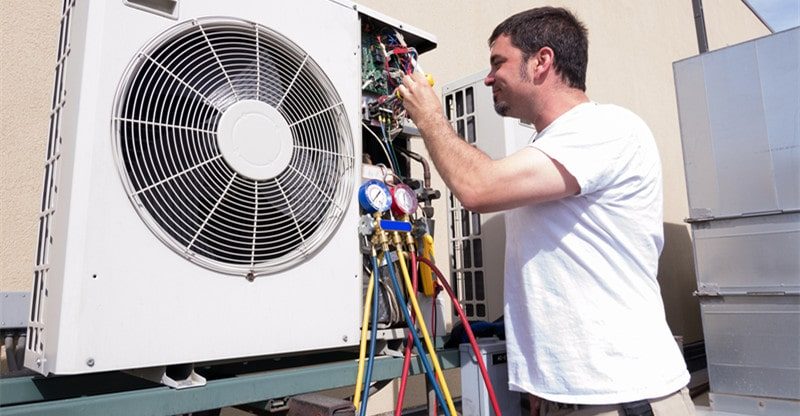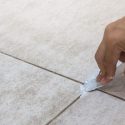How Can A Homeowner Contribute To AC Repair
Professional HVAC repairs can be costly. While these are sometimes unavoidable, it is helpful to employ adequate household upkeep to prevent malfunctions or defects in the system, ultimately saving you money and providing a longer lifespan for your unit.
Expert service will still become necessary at the end of the spring and fall to prepare for the extreme weather conditions of summer and winter. The service providers can detect issues where the average homeowner would not be in tune with the complex setup of the HVAC system.
Then the provider can make necessary corrections. That way there’s minimal fear of a breakdown at the worst point of the season. While there, the technician can instruct on simple DIY repair suggestions and show you around the model to help you know what to look for as a novice.
Understanding the basics is the first step in taking preventative measures for your AC repair project. That does not mean you don’t need professional help. Do not take on anything that is too complex, or you could create a bigger problem.
How Can A Homeowner Contribute To AC Repair
The more a homeowner can troubleshoot their air conditioning issues and potentially resolve the problem, the less they spend on costly service calls. Still, even if the need arises for professional intervention, the greater your knowledge in providing the service tech directives, the less time will be spent figuring out the issue and more time resolving it, ultimately saving you money in the end.
You do not want to try any fixes above your skill level or knowledge in this complex system. That can create further damage and higher expenses. Once you troubleshoot and realize the problem is professional-grade, contact your service provider for assistance.
View here for common air conditioner problems. Some simple fixes that a service tech can guide you through:
• Inspecting/Changing Air Filters
Disposable air filters are typically lightweight of a cardboard consistency frame with a mesh or foam middle meant to trap debris or dust particles. The suggestion is that these slide out of place and a new one pushes back in the space every 90 days.
If you use your AC extensively, every 30 days is more reasonable, or if you have pets or other reasons the filter would become clogged quickly, more often would be warranted.
The pleated, higher efficiency options are the suggestion because these have the capacity to collect more debris than other filters. It is wise to inspect frequently, especially if you feel there’s potential for them to gather more dirt than average.
• Outdoor Units Need to Be Debris and Grime-Free
Check the unit frequently to ensure there is no debris collecting like pollen, foreign objects, twigs, leaves, either in or surrounding the compressor. Take anything away that might be preventing airflow.
Any foliage or gates or fencing needs to stay at least 2 to 3′ away from the condenser. When mowing the grass, always make sure to keep the cuttings away from the system.
• Register, Vents, And Air Duct Cleaning
It is essential to use a vacuum to clean around the registers and the vents in the slats and then use a damp cloth to wipe them down. The air ducts should be kept clean as well. A professional duct cleaning provider should come in to take care of thoroughly cleaning the air ducts periodically to ensure clean airflow throughout the house.
If you are noticing a buildup of dust on your vents or tables after just wiping them down, the air ducts need cleaning professionally.
• Pay Attention for Odd Sounds Coming from The System
Whether with an indoor or outdoor unit, if you notice any odd sounds coming from the system, there could be debris caught up. You can check to see if there is anything visible that you can pull out.
Otherwise, there might be a loose bolt that needs adjusting. If you can see issues with wiring, it is essential to contact your service provider for repairs. It would be best if you did not attempt to take on repairs with little to no knowledge of the problem or how to correct it.
You will ultimately cause more damage to the system resulting in higher expenses and possibly the need for a new unit. It’s wise to call for help from the start.
• Taking A Break from Using the System
If you experience weather that does not require the system, a warmer day in the winter or a cooler day in the summer, turn it off. It is nice to give the unit a break from running continuously throughout the season.
In the summer, fans can keep an area cool with the curtains drawn to keep the sun’s rays out. At night open the curtains to allow the cool evening air back in. In the winter, do the opposite on a warmer winter day. Ceiling fans will work in both situations; you need to make them work in the opposite direction for the season.
If you have a fireplace, take advantage of it, and ensure dressing appropriately for the temperatures. Light colors in the summer make a difference and thin materials like cotton or linen.
Final Thought
HVAC repairs can indeed be exceptionally expensive when dealing with a professional service. But when the issue is severe, you want these experts to handle the job, so the work is correct, and the problem doesn’t recur. Learn air conditioner maintenance tips here.
On the other hand, DIY household maintenance is necessary when the service providers have done their annual or biannual checks to prevent potential problems.
Typically, service techs will advise homeowners of the basics of the system and what they should be taking care of throughout the year while doing their annual service calls if the homeowner shows an interest.
The greatest knowledge a homeowner has, the better the household maintenance and the more details they can provide if there is a need for a service call. It saves time, effort, and money for everyone in the end. Plus, the system will have a much longer lifespan with this type of care.



